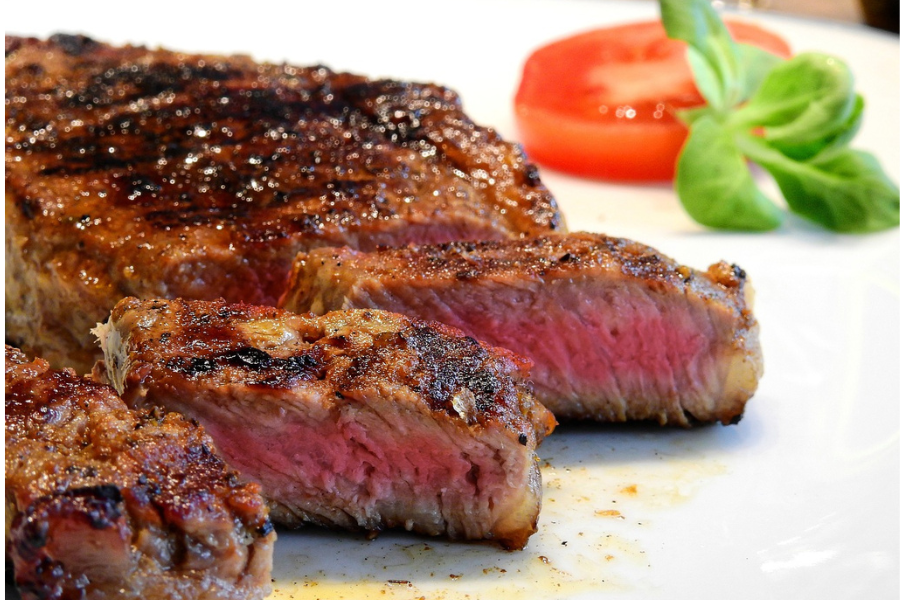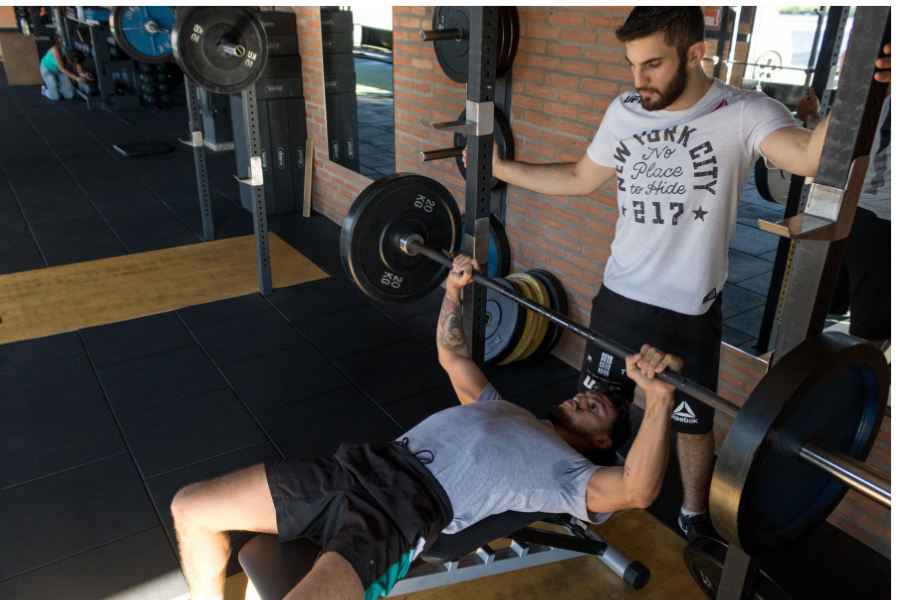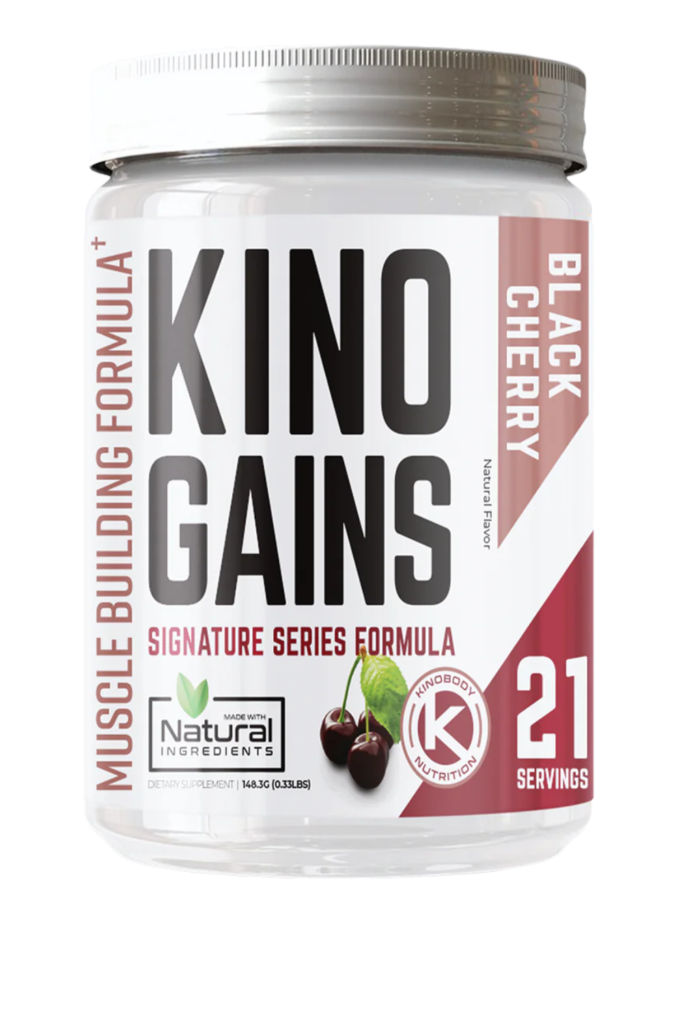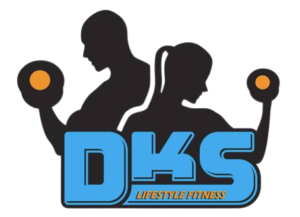Want to know why creatine is good for muscle growth? Creatine is the most well-researched and well-studied sports supplement of all time. There are decades of research and thousands of studies validating the safety and efficacy of creatine.

Our bodies naturally make creatine. It is not a man-made substance or anabolic steroid. We also get creatine from our diets.
This article will address:
- What creatine is
- How creatine improves strength and power
- How creatine can reduce age-related muscle loss
- How creatine supports brain function
- How women can benefit from creatine
- How vegans can benefit from creatine
- If creatine can help you lose fat
- The difference between creatine and protein
- Common myths about creatine
- How much creatine to take per day.
- Creatine Supplementation
What is Creatine?
Creatine is a type of amino acid produced naturally by the body. Amino acids are what build proteins, which build muscle and bone mass. About 50% of your body’s creatine storage is produced naturally. The other 50% is produced through diet.
95% of the creatine in your body is stored in your muscles, the other 5% is stored in your brain.
Foods such as beef, chicken, pork, and fish all contain creatine.
Creatine Improves Strength and Power

Creatine provides the muscles with energy during heavy resistance training or high intensity exercise. This results in bigger muscles. The muscles convert creatine into creatine phosphate, which is then converted into adenosine triphosphate, or ATP, which your body uses for explosive activity.
Creatine Can Reduce Age-Related Muscle Loss
Creatine supplementation has been shown to be effective at reducing or stopping age related muscle loss, bone loss, performance decline, and strength decline. This condition is known as sarcopenia.
You will experience this as you age regardless of training experience and level of lean muscle mass.
As we age, muscle tissue starts to fade, causing a decline in metabolic rate and an increase in the risk of metabolic diseases.
A study was published in the National Library of Medicine that examined the effects of creatine on resistance-trained adults over the age of 55. The results of the study showed a significant decrease in sarcopenia by supplementing with 5 grams of creatine per day.
This proves you don’t just have to be a fit 20-something year-old to build muscle and strength. You can do it in your older years as well.
Creatine Can Support Brain Function
Not only does creatine provide energy to the muscles, but it provides energy to the brain as well. About 20% of the energy it costs you to do any kind of task in your day-to-day life comes from creatine.
This is apparent if you are:
- A college or graduate student writing papers
- A project manager managing tasks.
- A web designer designing websites.
- A software engineer writing code
The brain relies on ATP to complete complex tasks. Even though ATP is naturally produced by the brain, creatine supplementation can aid in carrying out those tasks.
Older individuals benefit well from creatine due to a boost in improved memory recall. Research suggests that creatine may be able to prevent or reduce the risk of neurological disorders such as Parkinson disease.
However, more human studies are needed to determine if creatine can reduce Parkinson-related symptoms.
Women Can Benefit from Creatine

Females have been shown to store 70-80% less creatine than males. This can be attributed to factors including:
- Women having less lean muscle mass than men.
- A fluctuation of sex hormones that impact creatine synthesis during a woman’s menstrual cycle.
Many female strength and sports athletes are fearful of taking a creatine supplement because they think it will get them big or bulky. They also think it’s only for men. Creatine has been shown to greatly enhance training performance and body composition in women.
A study was published in the Journal of Applied Physiology that examined the effects of creatine supplementation on young resistance trained women.
19 young women between the ages of 19 and 22 participated in the study. They were placed on a 10-week resistance training program. One group of females supplemented with 5 grams of creatine a day and the other group was given a placebo.
Both Groups were placed on the same exercise program.
The results of the study showed a significant increase in lean muscle mass for the creatine group. They also had a 20-25% increase in 1-rep max strength for leg exercises that include:
- Squats
- Leg Press
- Leg Extension
These are incredible results for just a 10-week study.
Creatine Can Benefit Vegans
Vegans have significantly less creatine storage than meat-eaters. This is because you can’t get dietary creatine from a vegan diet. Unfortunately, plant-based protein just isn’t as efficient as animal-based protein in terms of providing cellular energy.
With a plant-based diet, you would be very limited in terms of endurance, strength, and performance.
The great thing about most creatine supplements on the market is they are 100% vegan. Strength athletes that are vegan can increase their muscle creatine storage by up to 40% with continuous supplementation.
This would put their creatine levels on the same levels as people who consume meat.
Does Creatine Help You Lose Fat?
Creatine is not really a fat loss supplement, but that doesn’t mean there are no fat loss benefits to supplementing with creatine. Strength-training paired with creatine increases muscle mass, which increases metabolism.
The increase in metabolism increases your total daily energy expenditure or TDEE. Indirectly, creatine supports fat loss.
The Difference Between Creatine and Protein
Creatine supplementation is not a replacement for protein supplementation. It’s true that they are both amino acids, but they have separate functions.
Creatine produces more strength and endurance during heavy-resistance training sessions. Protein promotes more muscle repair and muscle building after workout sessions.
If you want to learn more about protein supplementation, check out this article Why You Should Supplement With Collagen Protein If You Are Over 25-Years-Old.
Common Myths About Creatine
There are many myths surrounding creatine that either deter people from supplementing with it or supplementing with it for the wrong reasons. In this section of the article, we will debunk those myths.
1. Creatine is a Steroid
Creatine is by no means a steroid or performance-enhancing drug. It is an amino acid that is naturally produced by the body and abundant in foods such as red meat and sea food.
2. Creatine Can Build Muscle Mass Without Exercise
Creatine alone does not build muscle. It provides the muscles cells with energy so that you can easier achieve progressive overload in the gym. Creatine paired with strength-training will lead to increased muscle growth.
3. Creatine Causes Fat Gain
Creatine does not make you fat. What causes fat gain is being in an excessively high caloric surplus. Creatine may add 1-3 pounds to the scale in some people depending on how much muscle the person carries, but those pounds are water not fat.
Water inside the muscles makes them look more defined and feel tighter. Water outside of the muscles is what makes you look “bloated”.
4. Creatine Damages Your Kidneys
There is no research that shows creatine supplementation causes kidney damage. This myth evolved from cases of people taking a creatine supplement while already having a pre-existing kidney condition.
Many people would buy creatine supplements without reading the warning label first.
It is typically advised by health care professionals to not take a creatine supplement if you don’t have healthy kidneys.
In this case, it would be best to consult your physician before taking a creatine supplement or get your creatine from just dietary sources.
How Much Creatine Should You Take a Day?
The amount of creatine you need per day is going to depend on different factors such as:
- Red Meat Consumption
- Muscle Development
- Training Experience
- Body weight
For instance, if you are someone that consumes a lot of red meat or steak, then you won’t need to supplement with that much creatine. Red meat is the most abundant source of dietary creatine.
In this case, you would be fine supplementing with just 2-3 grams of creatine per day.
Most people don’t need more than 5 grams of creatine per day.
Kino Gains Creatine

Kino Gains Creatine is an incredible creatine supplement for building strength, mass, and power. You can purchase Kino Gains Creatine from kinobody.com.
What Makes Kino Gains Unique?
Kino Gains contains 4 of the best ingredients in the world designed to help you build muscle as a natural.
Creatine HCL
Creatine HCL has been shown to be 40x more dissolvable than creatine monohydrate, which is the most popular form of creatine. Since creatine HCL is fast absorbing, you don’t have to drink a ton of water to get the maximum benefits.
Choline
Choline is an underrated supplement that over 90% of the western population is deficient in. Supplementing with choline allows your body to dispose of access estrogen. Low levels of choline in your system are by no means a joke.
It can lead to side effects that include:
- Difficulty maintaining focus.
- Low levels of energy
- Brain Fog
In addition to the side effects of low choline, you would also be at risk for a condition known as Fatty Liver. This is a condition that occurs when fat metabolism is slowed, and an increase of lipids takes place in the liver.
Zinc
Zinc is an essential mineral that is imperative for testosterone functioning and immune health. Zinc leaves your body every time you ejaculate, exercise, or sweat. Foods such as oysters and red meat contain a high amount of zinc.
Zinc is a powerful supplement for increasing both total and free testosterone levels.
If you want to learn more about increasing your testosterone levels, check out this article How to Increase Testosterone Levels.
Betaine
Betaine aids in the synthetization and digestion of creatine to improve performance and muscle fullness through hydration. Plant-based foods and animal-based foods naturally contain Betaine.
Additional Facts About Kino Gains
Kino Gains Creatine:
- Is made with all organic ingredients.
- Is 100% gluten free.
- Contains no artificial flavoring or sweeteners.
- Contains no unnecessary chemicals or preservatives.
Kino gains plays a significant role in ATP production, which means it greatly improves high-intensity exercise and duration.
Click here to purchase Kino Gains. Use discount code: DEVONE69602 and receive 10% off your purchase.
Conclusion
Creatine is not a harmful substance. It can be useful for improving muscle definition, strength, endurance, cognition, and so many other human functions. Just like any other fitness supplement, make sure you have mastered nutrition protocol and training first before taking it.
If you want to learn more about supplementation, check out this article 5 Best Natural Supplements for Fat loss and Muscle Gain.
